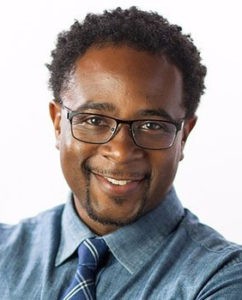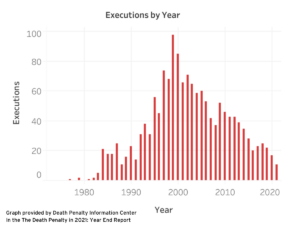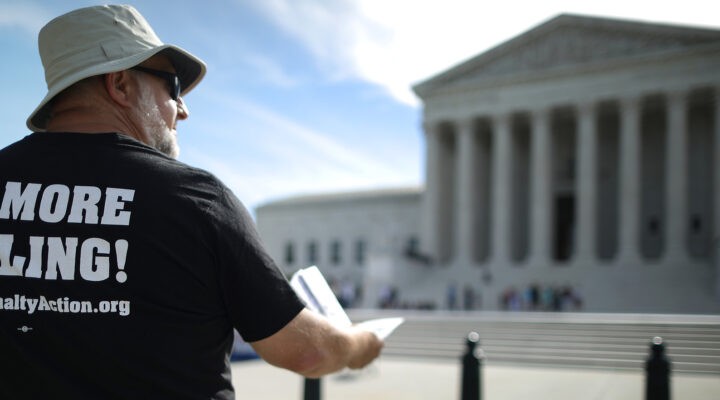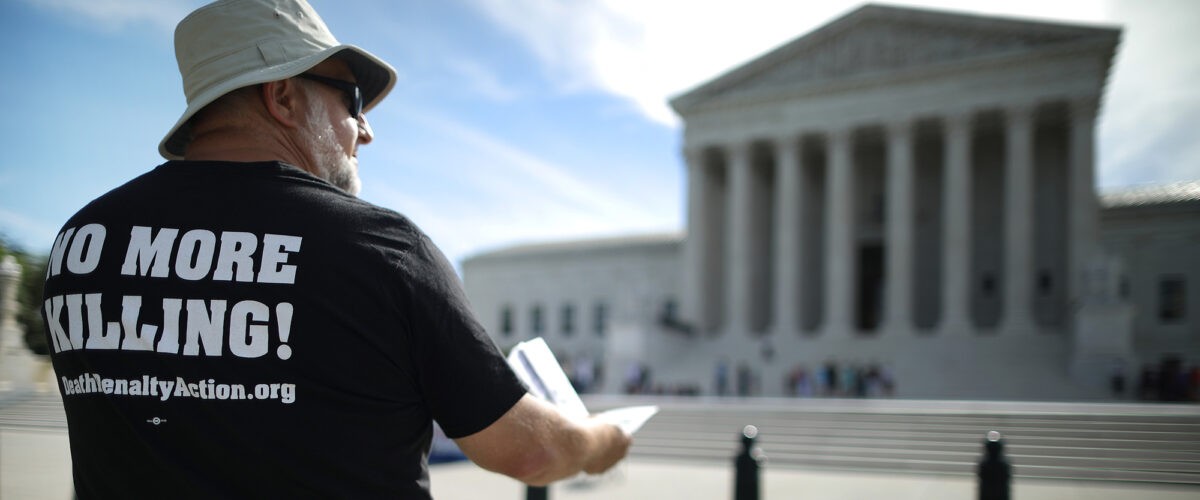A Christian organization active in the nation’s death penalty abolition movement has created a panel of faith leaders charged with addressing the systemic issues that give rise to capital punishment and rationalize its continued use.
“This is not a board to oversee as much as a group to enable, shape and be part of the movement itself,” said Sam Heath, manager of the EJUSA Evangelical Network. The organization’s newly established Advisors Group “will be a watchguard and herald for the EJUSA Evangelical Network’s endeavors and they will also be champions of our work.”

Jemar Tisby

Stacy Rector

Aaron Griffith
Inaugural members include Jemar Tisby, the best-selling author of The Color of Compromise: The Truth About the American Church’s Complicity in Racism; Aaron Griffith, a scholar of American history and author of God’s Law and Order: The Politics of Punishment in Evangelical America; and Stacy Rector, executive director of Tennesseans for Alternatives to the Death Penalty and the spiritual adviser for a death row inmate until his execution in 2009.
Tisby said the challenges facing the group are significant. “We are living in the civil rights movement of our day. The criminal legal system at all levels — from policing to the courts to prisons — is often a leading agent of injustice.”
Nevertheless, the struggle must be undertaken, he added. “People of faith must stand for the dignity of all people, and the Evangelical Network at Equal Justice USA has a longstanding commitment to doing just that. I am excited to engage with them in this vital work.”
Part of Equal Justice USA, the network was launched in 2017 by evangelical leaders seeking to counter violence and injustice with values of restoration, public health, racial justice and healing. Founding members included Shane Claiborne of Red Letter Christians and Gabriel and Jeanette Salguero of the National Latino Evangelical Coalition.
The network and Equal Justice USA are active in high-profile criminal justice efforts around the nation, including initiatives to abolish the death penalty.
EJUSA on Jan. 19 alerted supporters that legislation to end capital punishment had been introduced in the Utah legislature. It also urged action. “We need you to email your lawmakers and encourage them to support HB147 to end Utah’s death penalty.”
The organization issued a statement this month about Martin Luther King Jr.’s opposition to capital punishment: “He knew the death penalty was an undeniable extension of the legacy of lynching. Those acts are possible for the same reason that slavery was possible — in the words of Dr. King, to justify slavery early Americans ‘depersonalized’ the victims, stripping them of their humanity, and they ‘stigmatized’ Blackness. Like our broader criminal legal system, racism is at the core of the death penalty system. Forty-one percent of death row is occupied by Black men. Of the 186 people exonerated since 1976, because of wrongful convictions, 54% were Black.”
 The EJUSA Evangelical Network helped coordinate a livestreamed event in November to generate greater Christian support for the ongoing campaign to end capital punishment in Ohio. Heath connected the death penalty to deeper currents of social injustice and racism and argued that state-sanctioned executions do not square with Scripture.
The EJUSA Evangelical Network helped coordinate a livestreamed event in November to generate greater Christian support for the ongoing campaign to end capital punishment in Ohio. Heath connected the death penalty to deeper currents of social injustice and racism and argued that state-sanctioned executions do not square with Scripture.
“Evangelicals believe all people are valuable, that no person is more or less valuable than another,” Heath said in announcing the online event. “The death penalty in Ohio is fraught with racial bias. The death penalty in Ohio sends the message that people of color are valued less. We reject that because people deserve more dignity than that. Ohio’s death penalty must end.”
The network also partnered with Virginians for Alternatives to the Death Penalty and the Virginia Interfaith Center on Public Policy in the campaign to repeal capital punishment in Virginia. That effort ended in victory when then-Gov. Ralph Northam signed legislation in March 2021 repealing the practice and vacating the state’s death row.
“The signing ceremony was the final action of a crushing blow against the death penalty, one of our nation’s most visible and egregious responses to violence. But what happened in Virginia in recent months, and stretching back well into 2020, is about so much more,” the network said after the victory.
“Virginia is the first former Confederate state to abolish capital punishment. It comes after a year that saw the dismantling of 168 Confederate symbols across the nation. Nearly half of those symbols were found in the commonwealth. Our national tolerance of hatred and racism is weakening. There is a renewed urgency to end mass incarceration, police violence and all existence of systemic racism.”
Related articles:
The death penalty is dying a slow death; it’s time we pull the plug | Opinion by Stephen Reeves
It’s official now: Death penalty no more in Virginia
American support for death penalty remains low, as new debates arise in Oklahoma, Ohio and Texas


